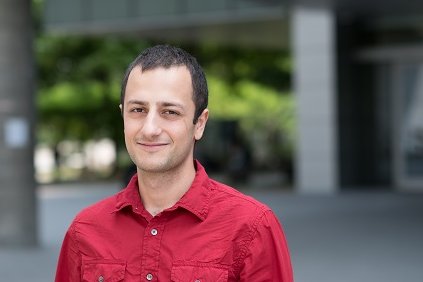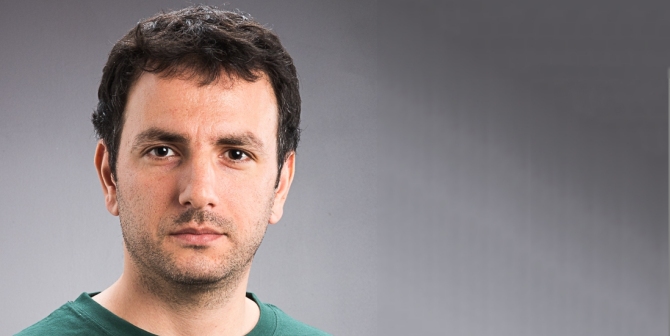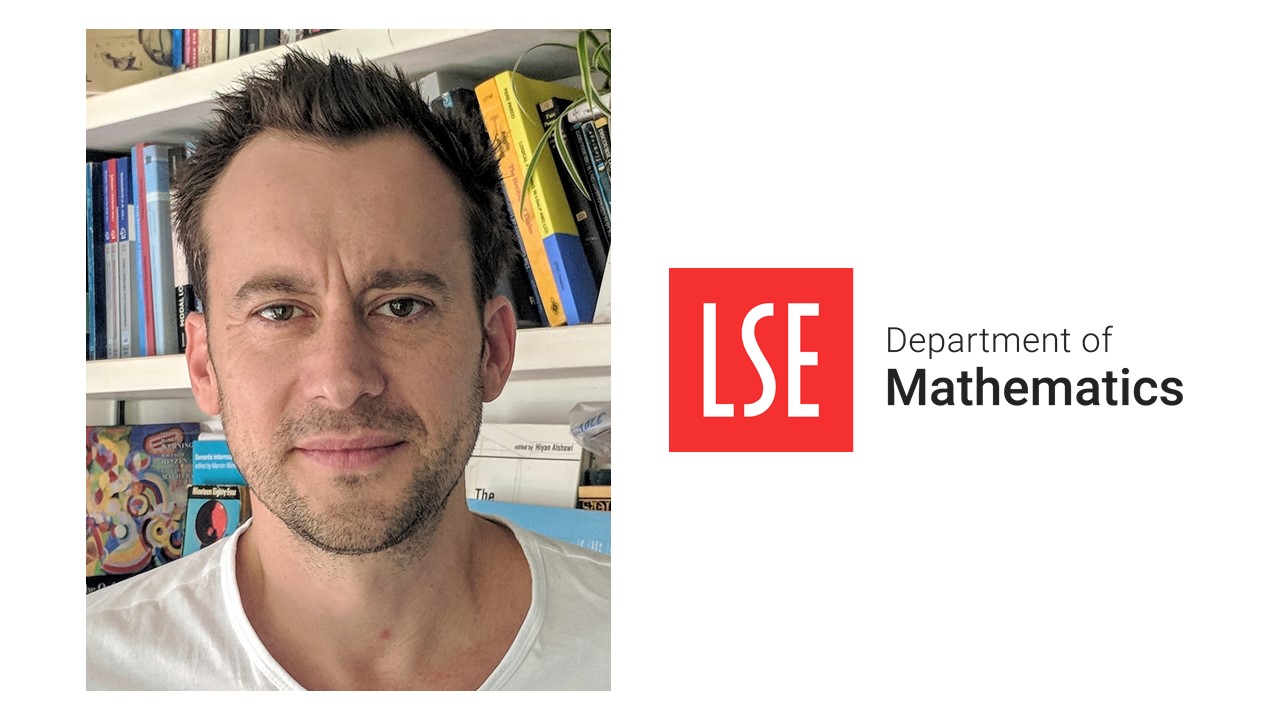 Neil Olver joined the Department of Mathematics as an Assistant Professor in November 2019, and is part of the Operations Research Group within the Department.
Neil Olver joined the Department of Mathematics as an Assistant Professor in November 2019, and is part of the Operations Research Group within the Department.
In this post, Bento Natura finds out about Neil’s career prior to joining LSE, his research interests and what he misses most about pre-pandemic life…
Can you tell us a little bit about yourself?
I’m originally from South Africa, born and raised in Cape Town. My path has been that I first did my masters and PhD in Canada at McGill University. Then I spent a few years at MIT as a post-doc, and became faculty at the Vrije Universiteit Amsterdam before moving to LSE.
As an undergrad I studied mathematics, but also physics and computer science. I’ve always been rather broad. Now I do mathematics and computer science, so physics fell away – but then I married a physicist!
And have you always been in a mathematics department?
Everywhere except for Amsterdam, where I was in an econometrics and operations research department. The combination of econometrics and operations research seems to be unique to the Netherlands.
In layman’s terms, what are your main fields of research or interest?
I mostly work in combinatorial optimisation, that is broadly speaking, looking at optimisation problems which possess some real interesting structure that we try to exploit to solve the problem. Many of the optimisation problems I work on involve networks. One of my favourite problems is the Steiner Tree problem, which is basically about trying to find the best way to connect points in a network. It’s a very simple problem that we still don’t understand very well.
Another thing I have been working on in the past two years is understanding simplified models of traffic, trying to prove statements about the behaviour of these traffic models.
Can you give an example where the Steiner Tree problem is useful or applied in practice?
The typical thing one has in mind is something like designing a communications network. I tend to be at least one or more steps removed from applications in terms of what I think about and where my interests lie.
A lot of these problems are quite concrete in the sense that many of them do relate to applications or came from applications, but that’s not my primary interest. I’m more interested in simplified models and very fundamental problems.
You mentioned that you studied mathematics, physics and computer science and now you work in combinatorial optimisation. How did you first become interested in this area and other areas of mathematics or computer sciences that you work in?
That essentially began when I started my master’s degree in Canada, the first time I left South Africa for a long period. When I started there, I had no clear idea what I wanted to do, but took some courses by Adrian Vetta. He is a mathematician working at McGill (he was in fact a student at LSE!), and I enjoyed his classes and ended up doing my master’s thesis with him. He was really the influence that led me into more algorithmic, discrete mathematics. As an undergraduate, I really enjoyed pure mathematics, but did not see it as a research career. Similarly, for applied mathematics, some of it wasn’t really to my taste.
Discrete mathematics had the best of both worlds: it is very mathematically beautiful, but not something you have to study for fifteen years to even make a start. I do feel that I have some affinity for the area. But also, I suspect there’s a lot of luck in these things in terms of who your lecturers, your teachers are, who has influence on you.
And also related to the next question, what impact outside of mathematics did your research already have and how do you expect / hope your will impact areas outside in the future?
Of course, I like the idea of having real world impact. But it is not my focus and it has not been what has driven me in research. I have been mostly motivated by what I find mathematically interesting. Operations research as a discipline is very impactful: people are really trying to solve the immediate problems. That is a little bit away from what I tend to work on.
One of the reasons I do like teaching is that you have much more immediate sense of having impact. And not just in teaching courses, but also supervising projects. I’ve done a fair bit of that where students are placed in companies. I really see that the skills and tools that I have, though not necessarily the things that I’m doing research in, are very useful in these applied situations.
If I find ways to cross disciplines, that is something I enjoy and that I feel is impactful.
One of my collaborators on a recent project is a transportation economist, and the work is hopefully of interest to people working in transportation economics.
What is the best part of LSE so far?
Here it’s hard not to give the same answer that I assume everyone gave to this question: definitely the people at LSE are fantastic. A real highlight for me. Just the atmosphere in the Department is really great. And I don’t think that is something you get everywhere. So for me, the people, that’s the main thing.
Certainly the location in the middle of London is a nice feature as well, I like London a lot.
And how has your experience of collaborating with colleagues online been to date?
It’s mostly been fine: as academics we are used to collaborating online. I think working with especially newer students has been more difficult, not having such an immediate and personal interaction. Starting new collaborations also seems more challenging, and I haven’t attempted this since the lockdown. The way collaborations often start is during in-person discussion at a workshop or just a research visit that gets set up.
Imagine the world is back to normal tomorrow. What would you make one of the highlights of your day?
One thing I would want to do soon would be to go with some friends on a sunny day, sit outside looking out over a nice, busy part of London, or Amsterdam with the canals and the vibe, and just enjoy feeling that city life again. That’s something I miss a little bit, just that sense of activity. Given that we are in summer, we would often take a boat out onto the canal and just drive around for a few hours.





